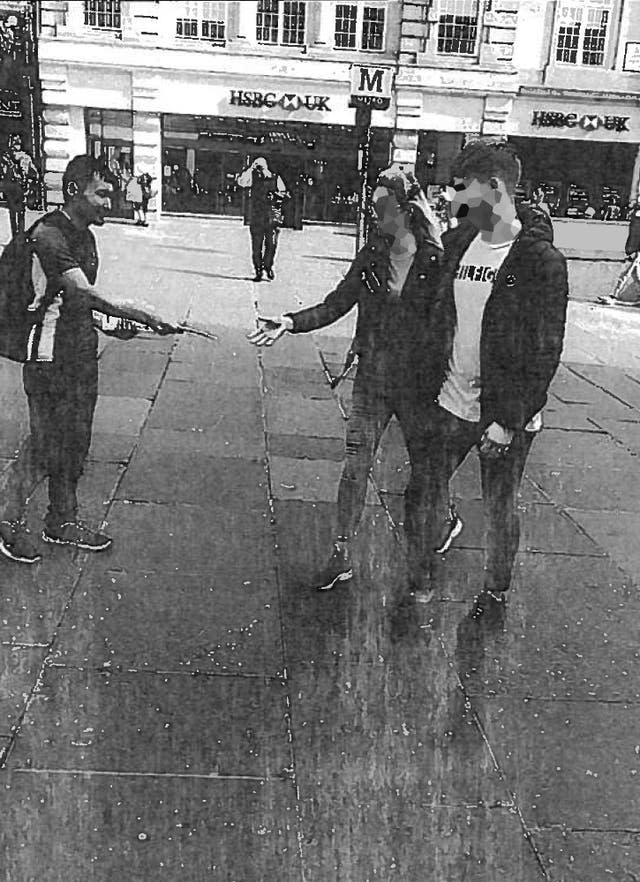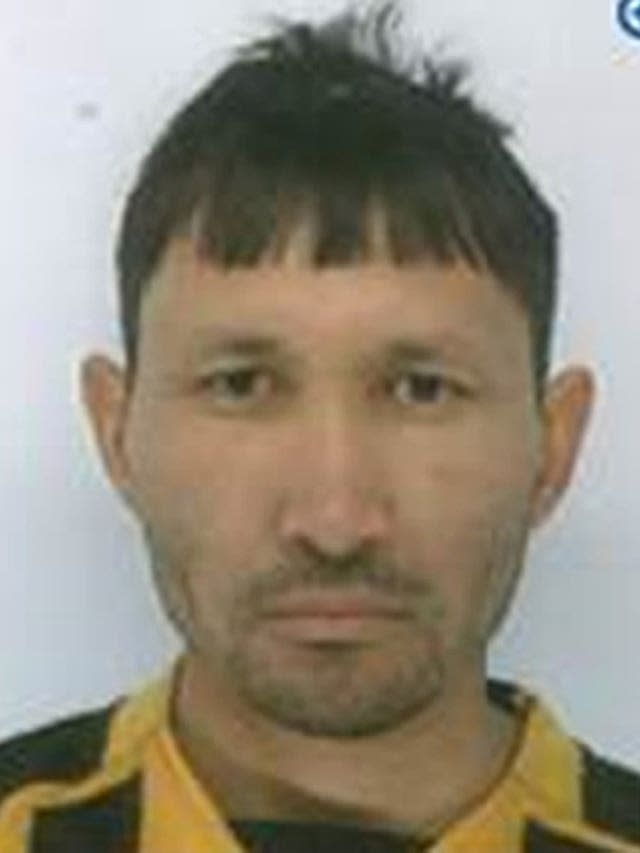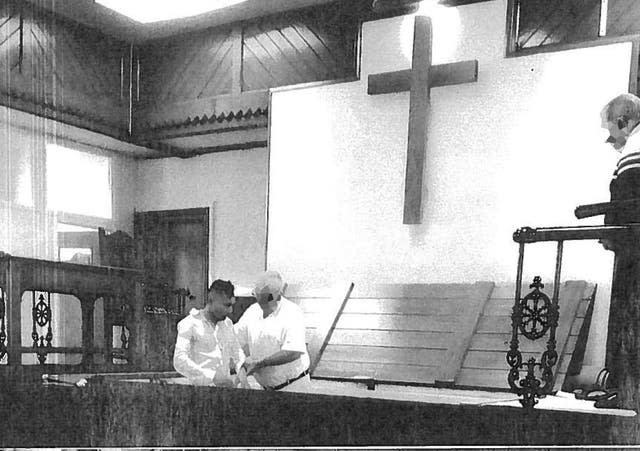What court papers tell us about Clapham chemical attacker Abdul Ezedi
Court papers paint a picture of chemical attacker Abdul Ezedi as someone who was considered dishonest and deceitful but also described as “pleasant and friendly”.
Details from previously confidential legal documents, obtained on Tuesday by reporters who argued the disclosure was in the public interest, reveal more information than ever before about the sex offender.
The disclosure shines a light on Ezedi’s state of mind and movements in the years after he arrived in the UK and how he came to be granted asylum to stay in the country, despite his conviction.
The records outline how the Muslim entrenched himself in church life in Newcastle as he pursued a religious conversion to Christianity, and allude to him being arrested several years before he went on the run in January, aged 35, while wanted by police for dousing his ex-girlfriend with alkali in Clapham, south London. His body was pulled from the River Thames last month.

Born on June 22 1988, Abdul Shokoor Ezedi told in one interview with Home Office officials how he grew up in rural Afghanistan, with “no education” or access to the internet, working as a mechanic for his father since he was a child. Even though he did not go to school his neighbour taught him to read and write, he said.
Ezedi, whose native language was documented as the Persian dialect Dari when he took part in court proceedings with an interpreter, arrived in the UK on January 8 2016 after he was apparently smuggled out of Afghanistan with his younger brother by an agent enlisted by his uncle.
But his initial asylum claim was refused by the Home Office, with an appeal later rejected by the courts the following year.
Documents show this came amid concerns about an inconsistent account of how his family had been terrorised in Afghanistan.
In a ruling dated February 8 2017, Judge Judith Gribble said: “I could not reconcile the account that the entire family had been threatened and the appellant (Ezedi) and his mother had been injured in an attack on the home designed to harm all within, with his account that his parents were content to remain behind.
“If the whole family had been at risk as initially claimed (and here again there is a difference between accounts) the whole family would have moved together to a safer place.”

The judge also said it was “not credible” that within four days of being seriously injured with multiple wounds, as he described, that he would be fit enough to endure a long car and lorry journey and periods of walking.
“I am therefore not satisfied to the lower standard that the account the appellant has given is reasonably likely to be true, I therefore reject the account of his brother being in the Taliban, the letters being sent to his family and the account of how his claimed injuries occurred.”
According to another document, Ezedi said his brother was shot outside a mosque on the same night that a grenade was thrown at the family home and that they suspected it was the Taliban because his brother, who had previously joined the group, had defected to the government.
But the account was rejected by government officials, because when he came to the UK he gave reason for coming as because he had heard British people were good people.
By contrast, other information tells how he lost contact with his brother in Greece having travelled through several countries after leaving Afghanistan.
But the Daily Mail reported that his younger brother Sebaghallah Ezedi – whose home in east London was raided in the manhunt – spoke out earlier this year urging him to give himself up to police.
Ezedi was handed a suspended sentence at Newcastle Crown Court on January 9 2018 after pleading guilty to charges of sexual assault and exposure, instead being placed on the sex offender register for 10 years and ordered to carry out 200 hours of unpaid work.
Just over a year later, on March 19 2019, he challenged the decision to deny him sanctuary in the UK again by lodging an appeal with the First-tier Tribunal (Immigration and Asylum Chamber), arguing he feared persecution because of his religion.
The papers detail conflicting accounts of his original faith, stating in April 2016 and February 2017 that he was a Sunni Muslim, but later describing himself as a Shia Muslim in June 2019. He put the discrepancy down to a misunderstanding because he had lived in a majority Sunni area and had worshipped in a Sunni mosque.

Documents from his lawyer Susan Liew, the co-founder and director of Newcastle-based Collingwood Immigration Services, submitted to support his claim stated Ezedi began attending Grange Road Baptist Church in Jarrow in February 2016, did an Alpha course and was “baptised by total immersion” on June 24 2018.
But under questioning about his new-found faith, the Home Office said he had been unable to demonstrate a “clear understanding of Christian principles and beliefs”.
Ezedi told officials the Old Testament of the Bible was about Jesus and wrongly said Jacob was one of his disciples. When asked “what was created on the third day”, he answered: “Good Friday and Easter Sunday and Resurrection day.”
The Government department did not accept his conversion was “genuine and long-lasting” and described him as being “prepared to deceive” and “use religion for his own ends”, according to court records of its legal submissions.
Supportive letters from faith workers described him as a “pleasant, friendly and co-operative man” but documents also confirmed he made an agreement to be effectively escorted at church services due to his criminal conviction.
Handwritten notes contained in Home Office evidence detail how in an interview with an immigration official in Liverpool in June 2019 he said he had been on medication for depression, adding: “Without realising I speak to myself. I talk to myself, I don’t comprehend when people speak to me and I have memory problems.”
Asked how the problems affected him, he said: “Nothing seems to be going well with my life. I talk to myself I have bad thoughts. Sometimes I tell myself to end my life. Then I realise it is not the right thing to do.”
He also told the interviewer he had previously been arrested in the UK, later clarifying he had been detained for a day.
It is unclear whether this is linked to his 2018 conviction, and Northumbria Police – when contacted by the PA news agency – refused to provide further details citing national police guidance which the force said prevents it from naming suspects arrested even after they die.
The court papers confirm his claim was granted after a hearing in Newcastle on October 28 2020 which lasted around an hour-and-a-half.
In a ruling dated November 10 of that year, Judge William O’Hanlon expressed concerns over Ezedi’s credibility and said he had “not been honest in several aspects of his account”. But he found Ezedi’s conversion to Christianity was “genuine” and granted his asylum appeal on the basis he would be in danger because of his faith if he returned to Afghanistan.
Collingwood Immigration Services declined to comment when contacted by PA.


